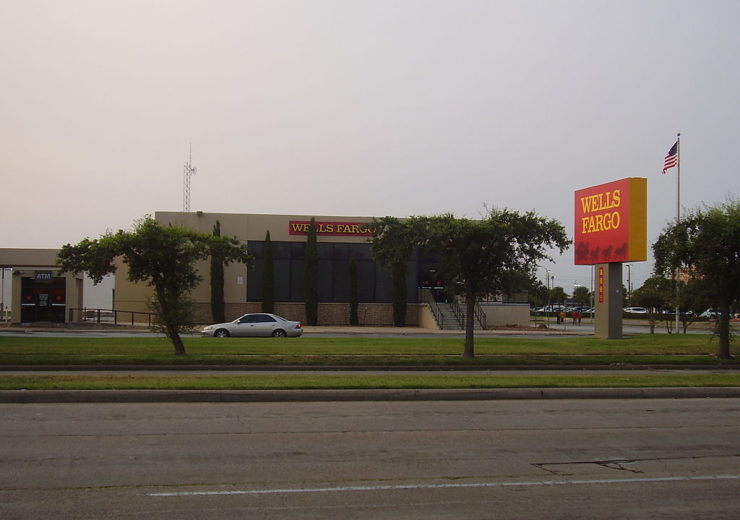Wells Fargo plans to test Wells Fargo Digital Cash, a distributed ledger technology (DLT)-based platform for internal book transfers

Image: Wells Fargo bank in Chinatown, Houston, Texas. Photo: Courtesy of WhisperToMe/Wikipedia.org
Wells Fargo & Company has announced plans to pilot its Wells Fargo Digital Cash, an internal settlement service based on its first distributed ledger technology (DLT) platform or blockchain.
With Wells Fargo Digital Cash, the company can complete its internal book transfers of cross-border payments within its global network using digitised cash and for such international locations to exchange that digitised cash among themselves.
Until date, Wells Fargo claims to have successfully proven the concept of moving value between the US and Canada. The DLT network will be a reusable enterprise utility for the company to build and deploy multiple applications based on blockchain.
The pilot DLT project is expected to begin next year with USD
The company plans to begin the pilot project next year and expects to complete United States Dollar (USD) transfers initially and plans to include multicurrency transfers and the entire global Wells Fargo branch network.
Wells Fargo said that the internal DLT network is proprietary and will not be connected to any other digital cash solutions.
Wells Fargo innovation group head Lisa Frazier said: “As a result of the increasing digitization of banking services globally, we see a growing demand to further reduce friction regarding traditional borders, and today’s technology puts us in a strong position to do that.
“We believe DLT holds promise for a variety of use cases, and we’re energized to take this significant step in applying the technology to banking in a material and scalable way.
“Wells Fargo Digital Cash has the potential to enable Wells Fargo to remove barriers to real-time financial interactions across multiple accounts in multiple marketplaces around the world.”
The company’s Digital Cash will run on DLT and will help in achieving near real-time movement of money without impacting the underlying account, transaction postings or reconcilement infrastructure with international transactions.
The financial services firm said that its global locations will also be able to use the technology and exchange funds in expanded operating hours without the limitations from traditional posting infrastructure or differences in infrastructure across the network.
Final settlement can be arrived at, without the need for third parties, reducing transfer time and costs. Corporate clients will not have to change their payment processes, cash management responsibilities or relationship management practices to benefit.
